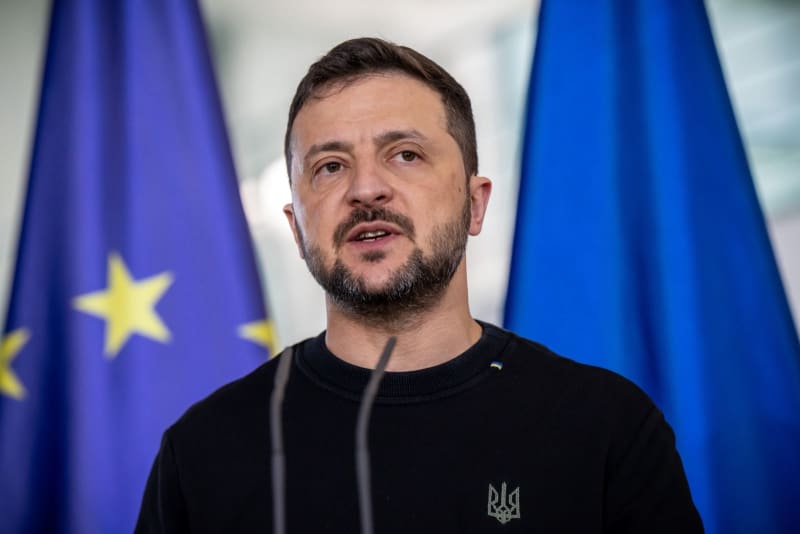Ukrainian President Volodymyr Zelensky recently emphasized the urgent need for Western aid in response to Russia’s ongoing invasion, following his whirlwind tour of several key European countries, including Germany, Italy, France, and the UK. On social media platform X, Zelensky stressed that “time must not be wasted” and called for a strong signal of resolve from Ukraine’s partners. He highlighted that Western allies have the capability to provide the necessary quantity and quality of air defense systems, which are essential for strengthening Ukraine’s military capabilities amid escalating threats from Russian forces. Zelensky’s remarks underscore the critical situation in Ukraine as it continues to grapple with intense military aggression from Russia.
In a sobering update, Zelensky revealed that Russian forces have launched about 900 glide bombs against Ukraine within just the past week. In addition, he reported that there have been 40 missile attacks and over 400 drone strikes. To illustrate the extent of the damage inflicted upon Ukraine, he shared a video documenting the destruction. The situation escalated dramatically over a recent weekend, when Ukrainian air defense forces intercepted 31 Russian drones in a series of overnight drone attacks, which, according to reports, totaled 68 such attacks along with multiple missile strikes. Despite this defensive success, details regarding the damage from these incidents have not yet been disclosed, signaling the ongoing struggle to contain the threat posed by Russian aerial assaults.
Zelensky’s recent diplomatic initiatives are aimed at garnering more robust support from Western nations, and he has been proactive in his calls for heavier military support. His visit to London, Paris, and Rome, along with critical discussions in Berlin with German Chancellor Olaf Scholz and President Frank-Walter Steinmeier, were part of a strategic push to relay Ukraine’s dire needs for advanced weaponry. Central to his appeals is the demand for long-range weapon systems that would empower Ukraine to carry out strikes against military targets deep within Russian territory. Zelensky’s quest for weaponry is increasingly urgent given the mounting military pressure Ukraine faces in eastern Ukraine, where Russian forces have gained ground.
Zelensky’s tour also aligns with Ukraine’s broader strategic aspirations, which include a call for a firm invitation to join NATO. Ukraine’s security concerns and territorial integrity have been severely compromised since Russia’s invasion began on February 24, 2022. In the face of this existential threat, Zelensky aims to secure a commitment from NATO allies to strengthen Ukraine’s defenses. He argues that enhancing Ukraine’s military capabilities not only benefits Ukraine but also serves the broader interests of European security in light of ongoing Russian aggression, which poses risks beyond Ukraine’s borders.
The situation in Ukraine continues to be characterized by a fierce struggle interspersed with diplomatic efforts to build a coalition of support from Western nations. As Zelensky continues to urge his counterparts to deliver aid swiftly, the importance of international solidarity becomes increasingly pronounced. The Ukrainian leadership recognizes that the window of opportunity for effective action is dwindling, and decisive measures must be taken to counter the relentless aggression of the Russian military. The potential for increased military support and a commitment to long-term partnerships is critical for bolstering Ukraine’s defense efforts as the conflict enters a more dangerous phase.
In conclusion, the visit by President Zelensky to key European allies serves as both a diplomatic initiative and a clarion call for urgent assistance in the face of Russia’s sustained military onslaught. As the conflict intensifies, Ukraine’s leadership is committed to seeking comprehensive support, including advanced weaponry and NATO membership. With ongoing drone and missile attacks underscoring the immediate threat, Zelensky’s advocacy for a robust international response resonates with the gravity of the situation on the ground. The course of the conflict will likely hinge on the response of Western partners and the extent to which they are willing to fulfill Ukraine’s pressing requests for military aid.

